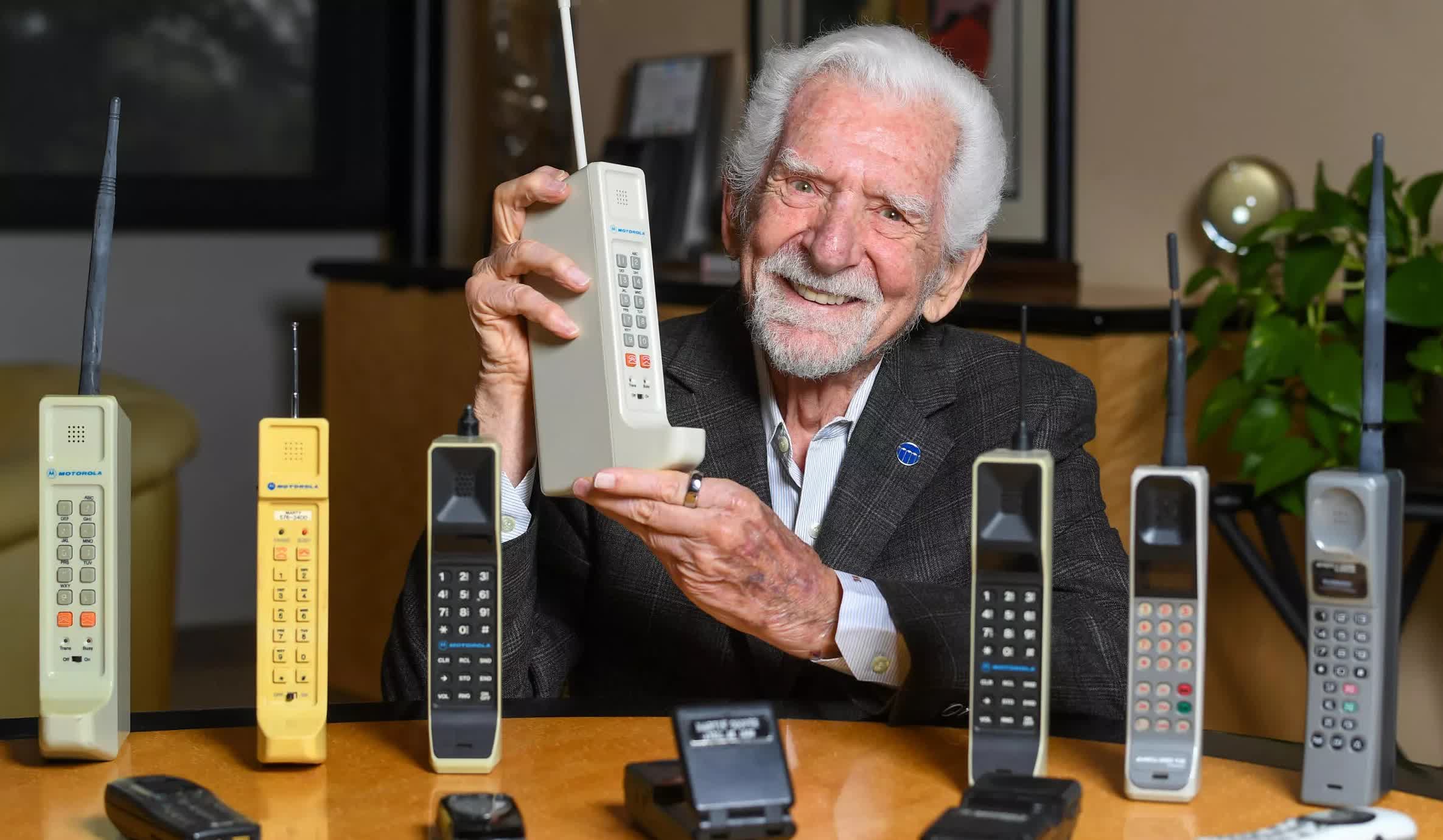Forward-looking: Martin Cooper, often referred to as the father of the cell phone, had a lot to say about the breakthrough technology in a recent sit-down with AFP. Even 50 years in, Cooper acknowledges that we are just at the beginning of understanding what mobile technology can do.
It's been nearly 50 years since Cooper placed the first public call using a handheld cellular telephone. "Mobile" phones already technically existed, but they were tethered to vehicles. Cooper's idea of a mobile phone was a truly portable device that was not connected to a car and in late 1972, he assembled a team tasked with building just that.
Once complete, he rang Dr. Joel S. Engel, a competitor working at Bell Labs, to inform him of the achievement. "There was silence on the other end of the line," Cooper said. "I think he was gritting his teeth," he added.
The handset Cooper used to call his rival was a DynaTAC (Dynamic Adaptive Total Area Coverage) that weighed about 2.5 pounds and had a very short battery life. All you could do with it was talk and listen, Cooper said.
Battery life was not a major concern, Cooper joked, because it was so heavy that you couldn't hold it for very long.
These days, the 94-year-old engineer uses an iPhone paired with an Apple Watch to perform ordinary tasks including checking e-mail, looking at pictures and even adjusting his hearing aid, but revealed he will never be as into it as his grandchildren and great-grandchildren are. In fact, he said he is shocked with how obsessed people are with their phones. Simply put, folks spend too much time looking at them and become caught up in them.

"I have to tell you I am devastated when I see somebody crossing the street and looking at their cell phone," Cooper said. It is an all-too-common occurrence, he added, noting that "they are out of their minds."
Smartphones may be used primarily for entertainment these days but eventually, he hopes that society will come around and start using mobile devices more effectively. The visionary firmly believes smartphones have the ability to revolutionize all sorts of industries including education and healthcare.
"I know this sounds like an exaggeration but I want you to know within a generation or two, we are going to conquer disease, eliminate disease."
Image credit: Valerie Macon, AFP
